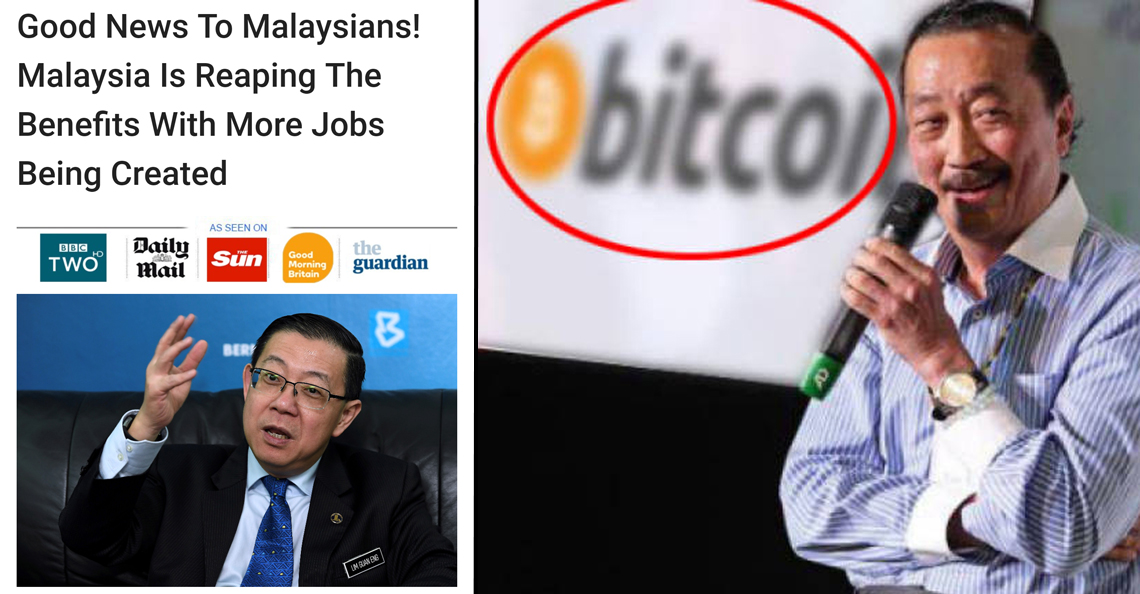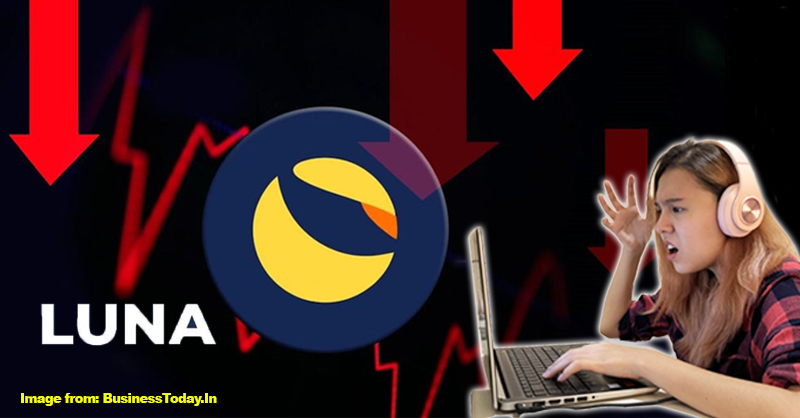Will Bitcoin soon replace normal money? This Malaysian in America uncovers the truth
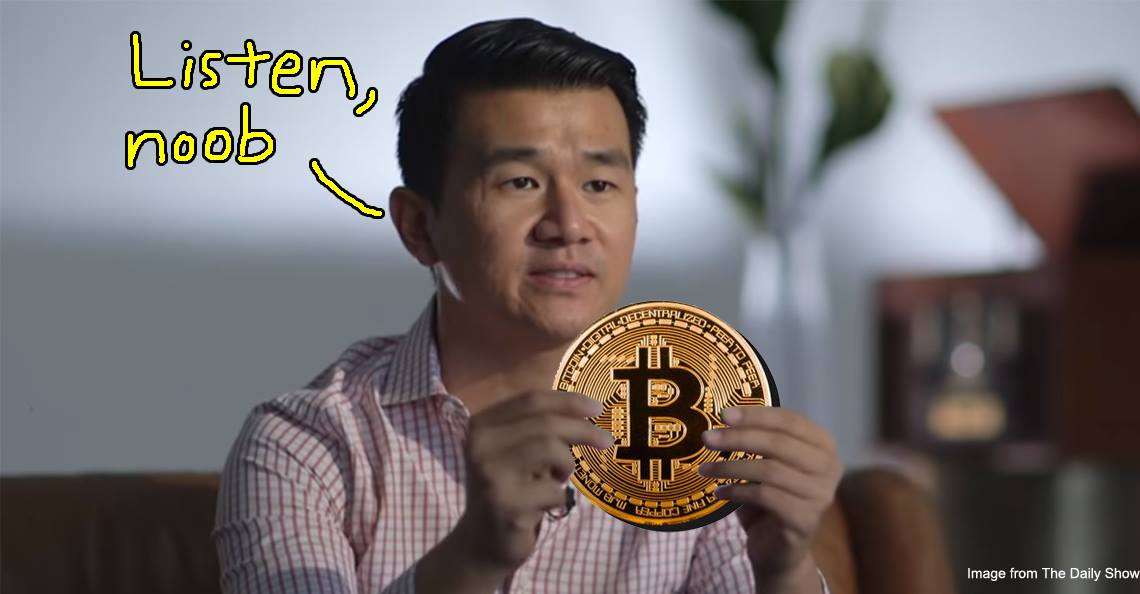
- 473Shares
- Facebook427
- Twitter4
- LinkedIn9
- Email10
- WhatsApp23
Chances are, you MIGHT have already heard about Bitcoins. News about bitcoin reaching some crazy new price keeps popping up on the news every now and then. Early 2016, a Bitcoin was valued at 438USD (RM1785). Fast forward to December 2017, its almost hitting 20,000USD (RM81,000).
Even if you don’t really follow Bitcoin news, you would know about it if you sit around long enough in a kopitiam or Starbucks. Wait a little longer and local kopitiams and nasi kerabu stalls will start accepting bitcoins as payment… wait, that’s already happening.
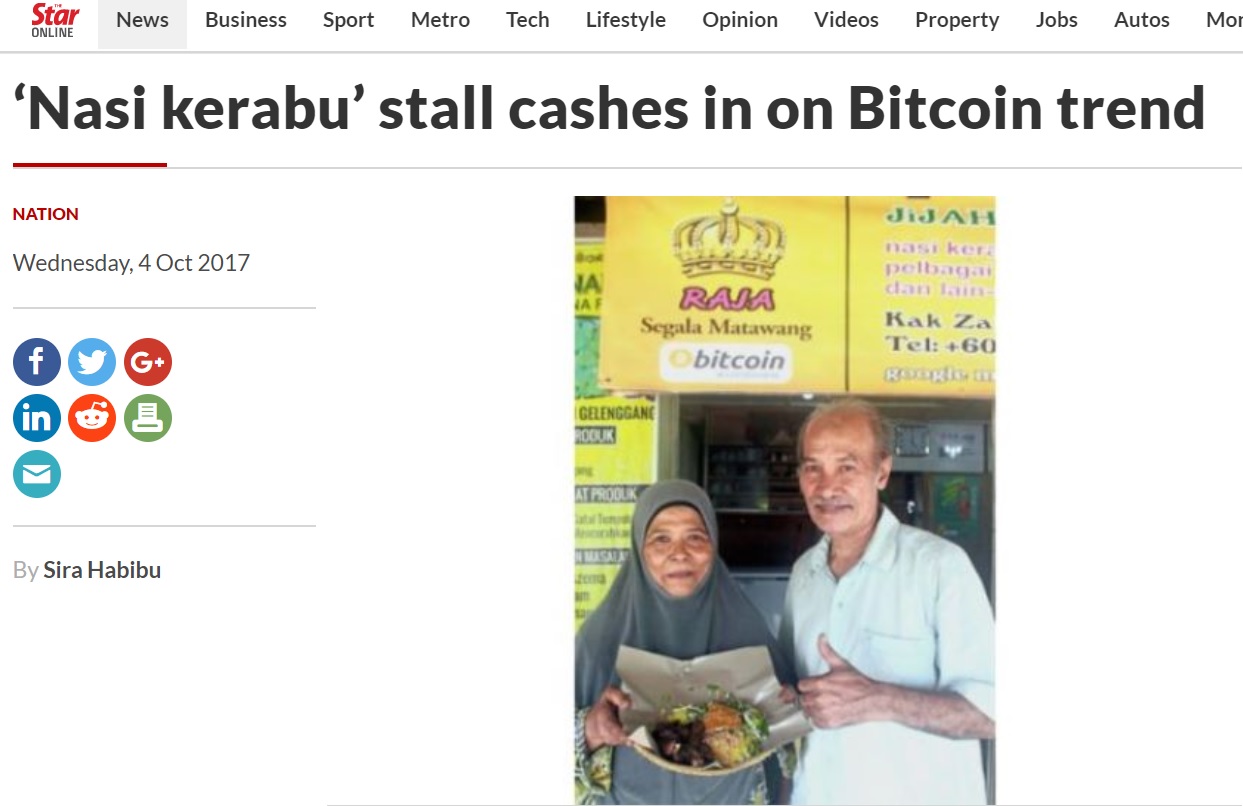
A pretty famous Malaysia comedian named Ronny Chieng recently did a segment about on America’s The Daily Show, talking about the bitcoin and cryptocurrencies. If you don’t know who Ronny Chieng is, you can read our previous coverage on him here. Anyway, as successful/funny as Ronny is, he seems to be having a hard time trying to understand what cryptocurrencies really are:
Ronny learned many things throughout the video, but one of the first things he found out was…
Anyone can start their own Bitcoin in “10 minutes”

Once Ronny had some basic understanding, he tried to make his own cryptocurrency! And very subtly named it “ChiengCoins”. Though he did not show proof that he created it, he claims he managed to do it in around 10 minutes, by simply going on a website and following the steps. With hopes of becoming rich, we’d tried to make our own CILICOINS too, but turns out the process wasn’t as straightforward as creating a new email, because you’re required to do some programming, and also fork out money for domains (no money la how).
We all know Bitcoin is a cryptocurrency, which is some kind of digital money that people can send to each other online. But Bitcoin is actually just one of the thousands of other cryptocurrencies available on the market, like Ethereum and Dogecoin (srsly?). But what makes cryptocurrencies so special, that even Dogecoin is worth almost USD 700 million (RM2.8 billion) in total?
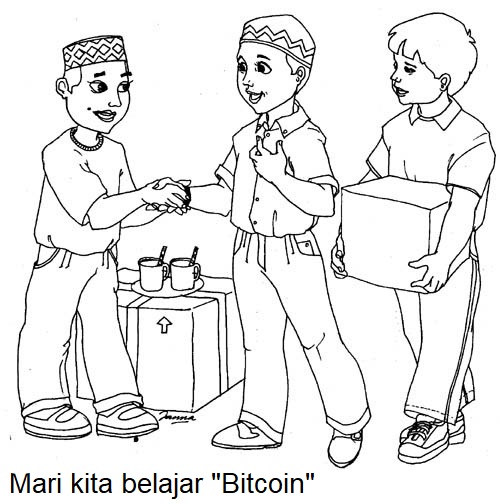
Bitcoins don’t really EXIST in a solid form. Instead, there are thousands of computers (provided by volunteers) around the world that are tracking and recording every bitcoin transaction permanently, like a stalker personal diary:
- 1st Jan, 2015 – Ahmad gave Ali one bitcoin for one piece of bread.
- 3rd March, 2016 – The bitcoin that Ahmad used to buy bread from Ali is now given to Ah Chong for one kg of rice
- 4th April, 2017 – The bitcoin that Ahmad used to by bread from Ali that Ali used to buy one kg of rice from Ah Chong is now used by Ah Chong to buy a Ferrari from Ferrari Moto Sdn. Bhd.
These records are repeated across MULTIPLE computers, which cross check each other to make sure the records are correct. In fact, everyone can actually see the transaction histories here. But, why these volunteers so nice? Well, in exchange for doing all this heavy calculations, they’re rewarded with – BITCOINS! And this is what’s known as Bitcoin mining.

The database is not only encrypted (which basically makes it hard for people to access and alter it), but also because its managed by many computers, any changes that need to be made to the database or system would require a majority of these computers to agree to it, making cryptocurrency highly fraud-proof and difficult to manipulate (hence “CRYPTO“currency). But because of this also, a single transaction can take around an hour to verify.
On top of that, cryptocurrency ignores borders and nationality. Since there are no exchange rates from country to country, one Bitcoin in Malaysia is worth the same as a Bitcoin in London.
By the way we quite n00b at this, so if anything wrong, please let us know in the comments ya?
But not everyone is gonna accept ChiengCoin, not immediately at least
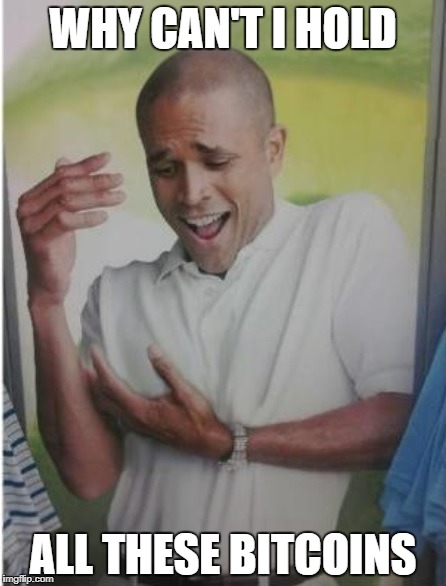
Sadly, Ronny couldn’t even buy a hot dog with his new cryptocurrency, let alone pay for a taxi ride. The price of Bitcoin didn’t exactly get to its current value immediately either. It was launched in 2008, and took many years for people to start warming up to the idea of an online currency.
Unlike normal currencies, the price of Bitcoins are not regulated or controlled by a central bank, so it is determined by open-market bidding on Bitcoin exchanges, similar to stock and gold prices, and that’s why it constantly changes. To illustrate that point: Back in 2010, someone bought 2 Papa John’s pizzas using 10,000 Bitcoins, which are now worth USD 100 million (RM407 million).
But sometimes, merchants that claim that they accept Bitcoins are not actually directly accepting it. It was reported in 2015 most companies like Dell, PayPal, and Microsoft that say they accept Bitcoins as payment actually receive normal cash in the end. What they do is partner with a third party exchanger and have the customer’s Bitcoins converted into cash and transferred to their accounts.
“I would say as a general trend most of our larger business do choose a settlement in 100% U.S. dollars because that’s how they do their accounting and finance,” said Tony Gallippi, co-founder and executive chairman of BitPay, quoted from Time.com
Of course, with the incredible growth in value of cryptocurrencies and the difficulty of understanding it, there are already scammers who are looking to dupe unsuspecting people. There are plenty of scams in Malaysia already, and cryptocurrency is being used as a new bait to old tricks. KCLau.com made a list of all known cryptocurrency scams in Malaysia, you can read about how to spot them here.
But you know, there might not be that big a difference between physical money and cryptocurrencies because…
Bitcoin is as “fake” as the US Dollar

Ok we gonna go into some SRS LONG AGO SEJARAH here. Way back in our nenekneneknenekx9000 moyang’s time, we started with the barter system (I give you bread, you gimme milk). This system worked, but sometimes it’s hard to carry a cow just to buy a stick of gum. So eventually we moved to precious metals (like gold and silver) to represent value, and EVENTUALLY, banks started issuing prove of ownership of it in the form of documents, so instead of carrying around chunks of metal, you would only need a piece of paper.
Up until the 1970s, these pieces of paper REQUIRED the bank that issued them to own the EQUAL amount in actual real gold. This is known as The Gold Standard. But in the 1970s, the US disconnected the US Dollar from gold, and soon the entire world followed. So now, any country can just PRINT money when they want, but only to the point where it doesn’t destabilise the economy. Countries still hold a certain amount of gold, but the value of the gold held is often far less than the money in circulation.
“In fairness, very few countries hold meaningful gold positions when compared to their money supplies. Even Singapore, generally regarded as having one of the healthiest balance sheets on the planet, holds a mere 2% of its money supply in gold.” – Simon Black wrote on Business Insider
So if not tied to gold, what makes the US Dollar go up or down? Well, it’s worth as much as how badly people want it. In the video, Ronny is told that cryptocurrencies work on the same basis as the American dollar: They only have value if enough people believe and have faith that it will perform well.
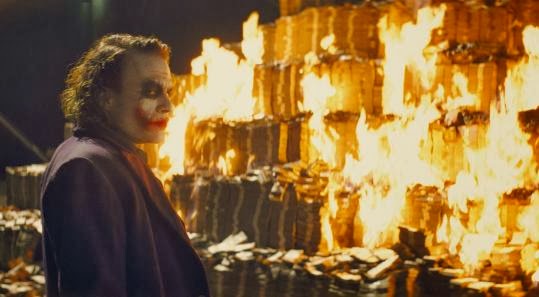
So now it kinda makes sense why political events and economic performance can influence a country’s currency value.
Sidenote: Because BitCoin is mined (limited supply), some argue that it’s ‘realler’ than the US dollar.
Bank Negara hasn’t given its final verdict, but it seems pretty open about it
Bitcoin has definitely left a dent in the world, but people can seem to agree on whether it is the way of the future, or simply just another scam waiting to collapse. The reception of cryptocurrencies by countries are equally mixed as well. Countries like Germany and certain states in the U.S. have agree to accept and regulate it as a financial instrument, while others like China and Bolivia have banned it. On the other hand, Russia is launching its own cryptocurrency, and South Korea Bitcoin exchanges experiencing cyber attacks… from North Korea most probably.
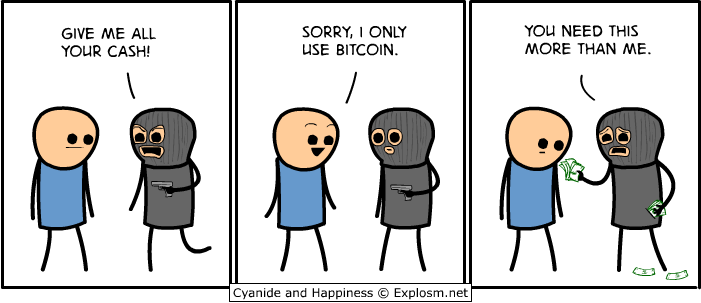
The currency also has a reputation of being engaged by criminals to cover their tracks of illicit trading, but the track record of law enforcement agencies in the U.S says otherwise. There are already more than a few cases smugglers and money launderers being traced and arrested by the authorities, since as we said before, all the transactions are recorded. Some even criticise the currency of destroying the environment from the electrical consumption of mining activities, with reports saying Bitcoin mining itself using more electricity than Ireland per year. But others argue that the it will definitely be brought down, and the cost is necessary.
For now, Malaysia hasn’t announced our guidelines on cryptocurrency officially yet. But going by recent news articles, Bank Negara Malaysia isn’t likely to ban it, as they have already released some draft rules for cryptocurrency exchanging operations in Malaysia. We’ll know the full deets on December 31st, 2017.
“Like all new technological innovations, the fear is that the bad guys use it. Regulating exchanges ensures it is a good step to nip that in the bud…” – Paul Khoo, the founder and CEO of GetCover, an insurtech firm operating within Bank Negara’s fintech sandbox, quoted from The Star
For now, just be wary of the Bitcoin scams going around, because we really wish we won’t to have to write another scam story. Don’t la make Datuk Seri Michael Chong have to marah Malaysians again.
- 473Shares
- Facebook427
- Twitter4
- LinkedIn9
- Email10
- WhatsApp23

